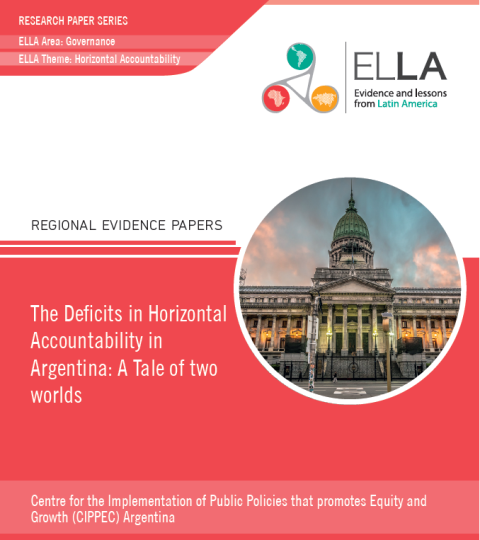While there are some drawbacks in specific countries, democracy has become the ‘only game in town’ in
Latin America. The most unequal region of the world has succeeded in guaranteeing democratic rules regionwide. However, several weaknesses remain; among them, how to develop not only good institutions, but also institutional capacities that work respecting the law.

This paper looks at the cornerstone of the institutional weaknesses in the region, namely, the executive-legislative relationship and horizontal accountability (HA). What are the determinants of the low performance of horizontal accountability mechanisms in Latin America and especially in Argentina?
In order to address this central question we studied a set of accountability mechanisms using a mix methods approach. The research is organized in two parts: the first explores definitions of horizontal accountability and its mechanisms and determines the extent to which HA mechanisms are useful fit for our case studies. The objective of this first part is to identify whether there is a gap between what is stated in law and what actually takes place, and what the consequences are for non-compliance. The second part aims to understand the determinants that help explain levels of low accountability.
This document is part of a South-South cooperation initiative coordinated by ELLA, Evidence and Lessons from Latin America, which aims to transfer lessons and good practices between African and Latin American think tanks. In this opportunity, the Monitoring and Evaluation Programme of CIPPEC works with OSSREA from Ethiopia about horizontal accountability in Argentina and Kenya. The planned outputs are: two regional evidence papers, one comparative evidence paper and a virtual learning alliance to exchange information with other participants from both regions.



